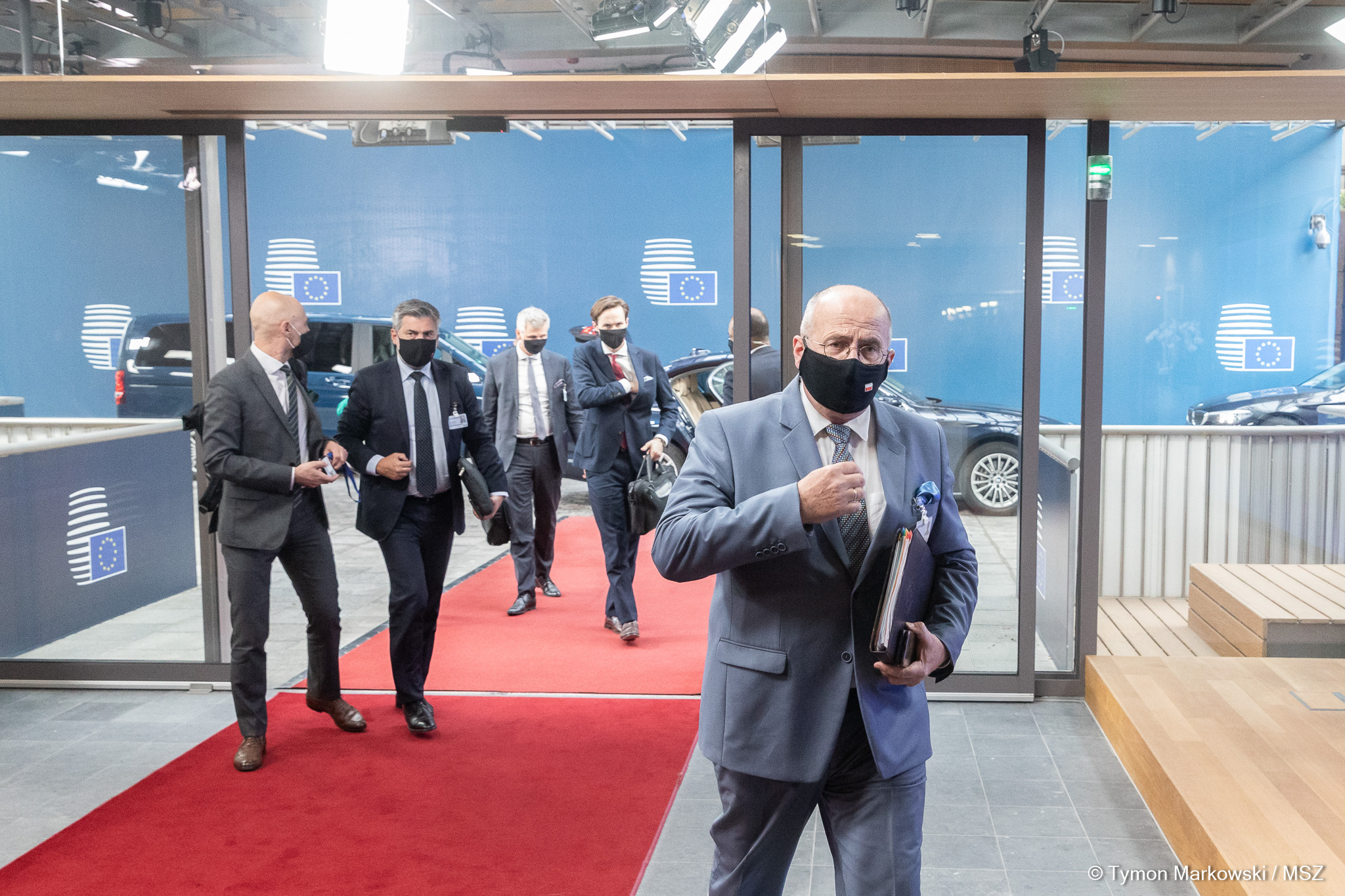Minister Zbigniew Rau takes part in Foreign Affairs Council meeting in Brussels
12.07.2021
Geopolitical aspects of new technologies, conflict in Ethiopia, and the Strategic Compass (strategic guidelines for the development of European defence policy) were the main agenda items for the Foreign Affairs Council in Brussels on Monday. EU foreign ministers also discussed the situation in Belarus and met with Israel’s Foreign Minister Jair Lapid.

Commenting on Belarus, Minister Rau stressed the need for the EU to continue its strong policy, not excluding further sanctions, depending on the situation. In this context, the chief of Polish diplomacy also expressed his solidarity with Lithuania, which is facing an increased influx of illegal migrants following the decision of the Belarusian authorities to suspend a readmission agreement with the EU.
During the discussion on the geopolitical dimension of new technologies, Minister Rau highlighted their impact on the European Union’s foreign policy and security. “Besides opportunities, they also carry risks, such as being used as a tool for launching aggressive political and economic expansion or cyber attacks, which recently also targeted Poland,” he said in his remarks. Minister Rau stressed the need for a close EU-US cooperation to promote global digital norms, including to prevent the division of the world into two separate blocs based on their internet governance model.
One of the items at the Council meeting on Monday was the adoption of conclusions on connectivity, or building global links, among others in the transport, energy, and digital sectors. The Council has decided to strengthen this policy, launched a few years ago, and to give it a global dimension. “For Poland, it is important that the EU establishes links in its immediate geographical neighbourhood, including with countries of the Eastern Partnership, the Western Balkans, and Central Asia,” Minister Rau said, emphasising in this context the importance of the Three Seas Initiative.
In the debate on the Strategic Compass, the head of the Polish MFA identified the major elements that should be taken into account: 1) concentrating on realistic targets; 2) striving for a swift and effective EU response to hybrid threats; 3) taking into account risks from all geographical directions; 4) the need to build resilience of European societies to cyber and disinformation threats; 5) close coordination with NATO’s Strategic Concept and taking into consideration the further development of EU-NATO cooperation.
While in Brussels, Minister Rau also attended a meeting of EU foreign ministers with Israel’s top diplomat, Jair Lapid. The Polish foreign minister welcomed the continuing ceasefire between Israel and Hamas. He underlined that to break the deadlock, it is necessary to resume dialogue to find a two-state solution to the conflict. He furthermore noted that improving humanitarian situation in the Gaza Strip and its post-conflict recovery should be the priority for all parties.
MFA Press Office
Photo: Tymon Markowski / MFA; European Union

